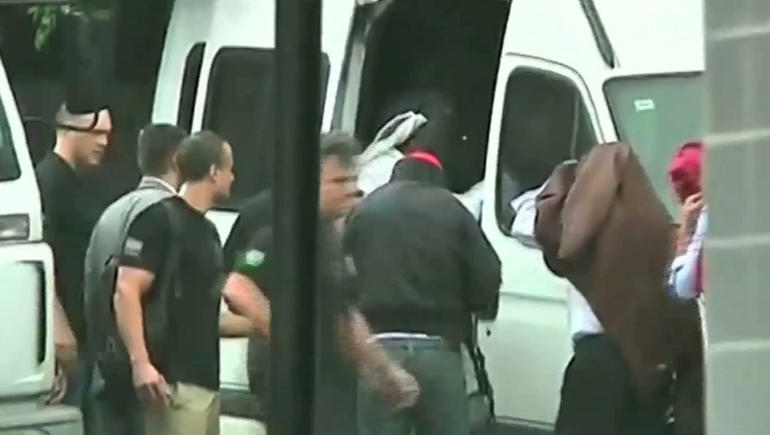Hundreds of politicians in Brazil are blocked from running in next month’s elections by an anti-corruption law. Chief among them is the man who signed the bill into law — former President Luiz Inacio Lula da Silva. CGTN’s Paulo Cabral has more on the measure’s impact.
In 2010, it was then-President Luiz Inacio Lula da Silva who signed into the law the Clean Record Act, which prevents people convicted of crimes or government misconduct from running for office. This year, while attempting to run for president again, he was caught by it. Serving a 12-year jail term on corruption charges, Brazil’s top electoral court deemed him an unfit candidate.
The Clean Record Act was introduced to Parliament as a “people’s initiative bill”, following a petition that gathered more than a million-and-a-half signatures. It continues to be very popular among Brazilian citizens. Former Justice Minister and Workers’ Party official Jose Eduardo Cardozo was responsible for the final draft of the bill that was approved by Parliament and sanctioned by Lula.
“The problem is not the Clean Record Act but the arbitrary convictions that have happened,” said Cardozo. “People can agree or disagree with the provisions of the bill, but the real problem here is the unfair sentencing that removed Lula from the elections, a conviction that had no proper evidence.”
It’s not only about Lula da Silva. In total, the net cast out by the Clean Record Act caught 749 people hoping to run for office this year. Some are still appealing their exclusions and hope to be on the ballots by Election Day.
Teachers’ Union organizer Aldo Santos had his bid to run for Parliament rejected and blames it on political persecution. He was convicted for using public resources for a homeless movement in his hometown, when he was a council member there.
“I was supporting a social movement,” said Santos. “I was a council member and in this position, as their representative, I cannot agree that helping homeless people is a crime.”
Sao Paulo’s Electoral Circuit Prosecutor says the law is increasing the quality of candidates in Brazil.
“It has had an enormous impact,” said prosecutor Luiz Carlos Goncalves. “This is now the second General Election held under the rules of the Clean Record Act and the political parties now avoid choosing candidates who they know will be barred by the law. So the Clean Record Act is extraordinarily effective. Less than three percent of the candidates have been barred from running because of this law.”
Revelations from recent corruption probes in Brazil have made it clear that there’s much cleaning up to do in the country’s politics. Some fear however, that the Clean Record Act, which was created to do that, could also be used unfairly to target politicians and parties.
 CGTN America
CGTN America

